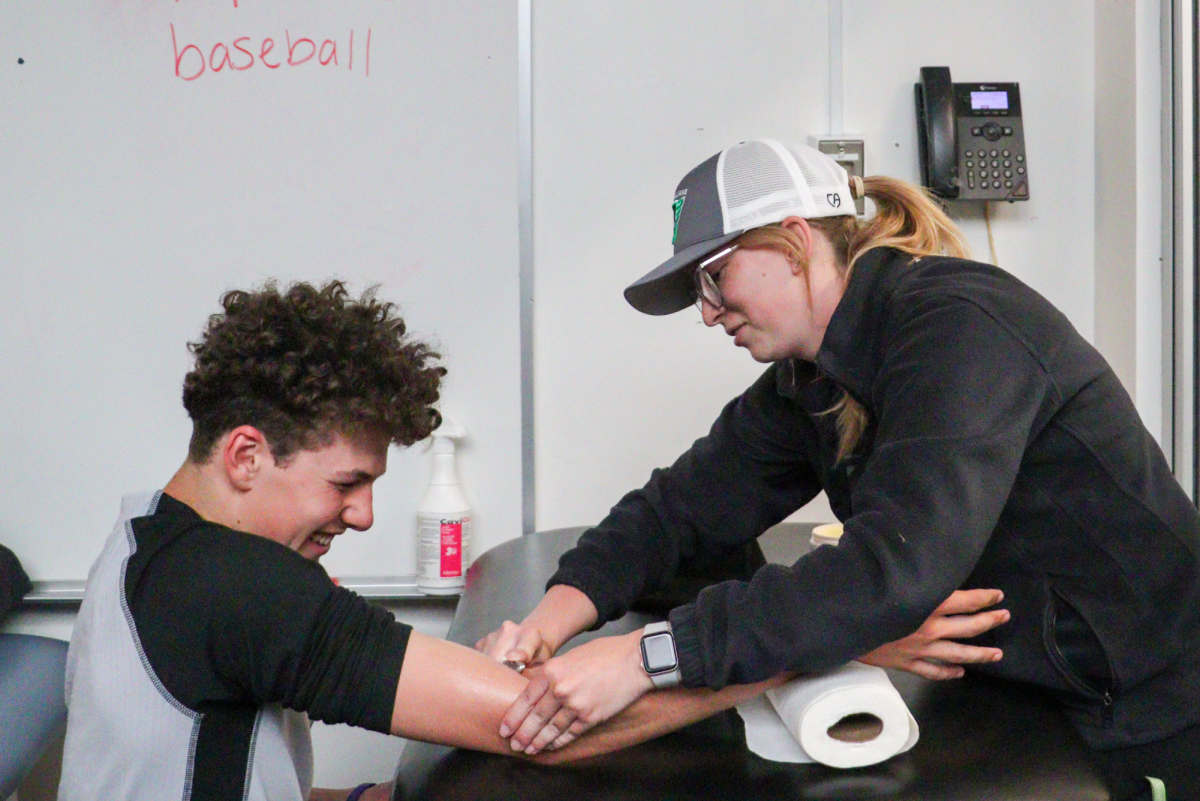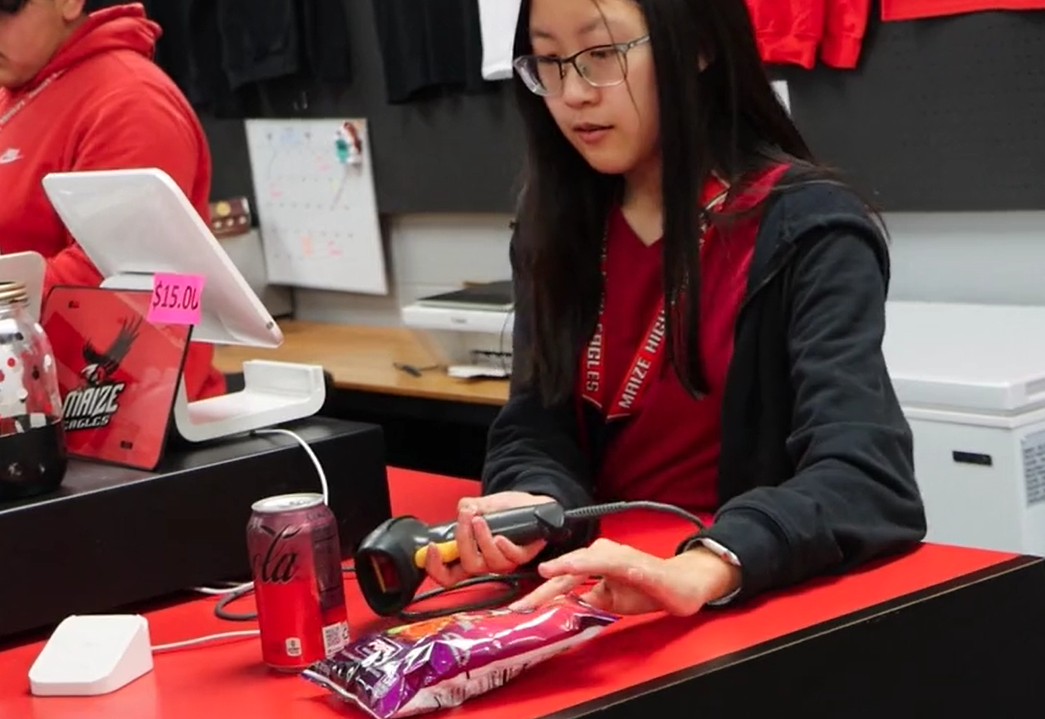Test optional?
A look into the increase of test optional admissions policies and whether this trend is likely to continue
Many colleges are no longer requiring applicants to submit standardized test scores.
June 2, 2022
For almost a century, standardized tests have been an important part of any student’s college application in the US. However, in the last two years an increasing number of colleges and universities have stopped requiring students to submit these test scores. This number increased drastically in 2019, when lockdowns led to situations where many students were unable to take these tests.
“In last year’s graduating class, there were just a lot of kids that … just didn’t feel comfortable being in a room with a bunch of strangers. And colleges recognized that and they didn’t require [test scores] for students to be admitted. And I think now that there was a little bit of a trend where schools were saying test optional, but now it’s become much more nationally accepted,” said Greg Yoder, a guidance counselor at West High.
However, earlier this year the Massachusetts Institute of Technology, MIT, reversed this trend, deciding to reinstate test requirements. But is this an isolated instance? Or will MIT be the first of a larger movement of the return to requiring standardized test scores as COVID cases decrease?
“There are other factors that go into the test score besides a student’s ability to achieve in college,” said Neal Olitsky, an Associate Professor of Economics at the University of Massachusetts, Dartmouth, an expert in the economics of education. “For example, children of wealthy parents take SAT courses, and so the reason why these students are able to score higher on the ACT or SAT is because they have the money to learn how to do better on those tests, which kind of defeats the purpose.”
Higher income students are more likely to have taken classes or had tutoring specifically and can afford to take the test multiple times to improve their score, while lower income students do not always have these opportunities.
Many colleges have cited inequality as a reason for not requiring standardized tests, and in addition to socioeconomic status, there are also divisions in the average scores received by students of different races and backgrounds.
Philosophically, I think test optional is the right thing to do. Because I just think the tests are not all fair. They’re not fair socioeconomically, racially, minority, first generation, they’re just not a fair comparison
— Alberto Segre, University of Iowa Professor and Chair of the Computer Science Department
Segre teaches a class to freshmen at the University of Iowa. In his class, there are students from the College of Liberal Arts and Sciences, which admits all students who are accepted into the university, as well as students in the College of Engineering and the College of Business, which are more selective, and require higher standardized test scores and GPAs to be accepted. Because of this, one might expect that the engineering and business students would do better, because they are harder schools to get into, but that isn’t always the case.
“Students from engineering tend to do very well in my class, students from business tend to do less well in my class. And those students have very different skill sets. And those skill sets, in some cases, work to help you do better than your test might otherwise imply,” said Segre.
So test scores and admissions requirements are not always the best indicator that a student will succeed in college. Segre also did a study analyzing data collected from cards that were swiped when students entered the cafeteria. The study found that students who regularly swiped their lunch cards with the same group of people, which indicated they were consistently eating meals with the same people, was a better predictor of whether a student would graduate than standardized test scores.
However, while standardized test scores are not the best factor in evaluating college applications, choosing who should get accepted into any program is a difficult decision to make, especially with fewer criteria.
“If you’re a college admissions officer and you have 20,000 applications to read… how are you going to differentiate between them? The answer is the best schools can’t really do that because they take the top of those 20,000 applicants. The top 1,000 of them, they’re practically indistinguishable. Even with test scores. Now take away test scores. How are you going to distinguish between those, how are you going to pick your incoming class?” said Segre.
If you’re a college admissions officer and you have 20,000 applications to read… how are you going to differentiate between them? The answer is the best schools can’t really do that because they take the top of those 20,000 applicants. The top 1,000 of them, they’re practically indistinguishable.
— Alberto Segre
ACT and SAT scores are not the best indicators of how likely a student is to succeed in college, but it provides a measurement that makes it easier to compare applicants from different areas. Two similar GPAs from two different schools are not equivalent to each other, as these schools do not always offer the same classes at the same difficulty levels, making it nearly impossible to know a student’s achievement just from their transcript. Additionally, different school districts and communities do not always have the same opportunities for extracurricular activities.
“[going test optional] will make [the admissions process] more subjective and more based on what the school or what the admissions office wants their student body to look like. By making it optional, it’s making their job harder… And I think there are going to be, just like there were when they were basing their admissions on tests, there are going to be mistakes. And I think there are going to be candidates who are rejected from programs where they would probably do very well, and candidates who are accepted who probably won’t,” said Olitsky.
However, standardized tests are a useful tool to compare students’ applications without having to take into account factors such as the difficulty of high school classes and number of opportunities available to students, although they are not a perfect measurement.
“There’s a balance here, and it’s a hard balance to find,” said Olitsky, “I think relying on test scores is problematic. I also think not having any test scores is problematic, but I don’t know what that balance has to be.”
There’s a balance here, and it’s a hard balance to find. I think relying on test scores is problematic. I also think not having any test scores is problematic, but I don’t know what that balance has to be.
— Neal Olitsky
“It used to be just a given for anybody planning to go to a four year college that they should plan to take an ACT. Now it involves a little bit of thought. But anybody who was hoping to earn a scholarship, I would encourage them to at least have something on file. And nowadays, there’s a lot of opportunities for kids to do some preparation to enhance their test score. That’s very widely happening and accepted throughout the country. I’ve just seen a lot of kids that have gone and made jumps of four to six points by putting a little time in preparation,” said Yoder.
While many schools are not requiring test scores, there are still a lot of scholarships that do, and having good test scores can also open up opportunities for students with fewer extracurricular activities or who attend schools with fewer advanced courses.
“My own daughter, just by going up one point on her ACT, she doubled her scholarship,” said Yoder. “sometimes it’s worth it to put in the time to prepare oneself for these things because it can make a difference.”
Even if you are applying to test-optional schools, doing well on the ACT and SAT can be beneficial, and the best way to prepare for these tests is to do practice tests. This will give you a feel for what the test will actually be like, in terms of question difficulty and content. Taking practice tests can allow you to try out different strategies for time management, and let you know what topics you might need to study before test day. In addition to buying a book of ACT or SAT practice tests, you can also check one out from the Iowa City or Corallville public library for free, or find practice questions on the ACT or Khan Academy websites.
This story was originally published on West Side Story on May 31, 2022.
































![IN THE SPOTLIGHT: Junior Zalie Mann performs “I Love to Cry at Weddings,” an ensemble piece from the fall musical Sweet Charity, to prospective students during the Fine Arts Showcase on Wednesday, Nov. 8. The showcase is a compilation of performances and demonstrations from each fine arts strand offered at McCallum. This show is put on so that prospective students can see if they are interested in joining an academy or major.
Sweet Charity originally ran the weekends of Sept. 28 and Oct. 8, but made a comeback for the Fine Arts Showcase.
“[Being at the front in the spotlight] is my favorite part of the whole dance, so I was super happy to be on stage performing and smiling at the audience,” Mann said.
Mann performed in both the musical theatre performance and dance excerpt “Ethereal,” a contemporary piece choreographed by the new dance director Terrance Carson, in the showcase. With also being a dance ambassador, Mann got to talk about what MAC dance is, her experience and answer any questions the aspiring arts majors and their parents may have.
Caption by Maya Tackett.](https://bestofsno.com/wp-content/uploads/2024/02/53321803427_47cd17fe70_o-1-1200x800.jpg)
![SPREADING THE JOY: Sophomore Chim Becker poses with sophomores Cozbi Sims and Lou Davidson while manning a table at the Hispanic Heritage treat day during lunch of Sept 28. Becker is a part of the students of color alliance, who put together the activity to raise money for their club.
“It [the stand] was really fun because McCallum has a lot of latino kids,” Becker said. “And I think it was nice that I could share the stuff that I usually just have at home with people who have never tried it before.”
Becker recognizes the importance of celebrating Hispanic heritage at Mac.
“I think its important to celebrate,” Becker said. “Because our culture is awesome and super cool, and everybody should be able to learn about other cultures of the world.”
Caption by JoJo Barnard.](https://bestofsno.com/wp-content/uploads/2024/01/53221601352_4127a81c41_o-1200x675.jpg)










